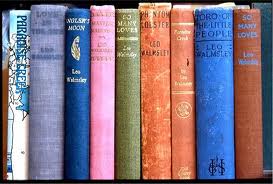Fiction - Short Stories
Read it
Short Fiction stories that tell the history and culture of a place have caught my attention as of late, especially in India. I have yet to branch out into exploring other places, but I'm sure I will. This is a collection of translated Odia stories.
I found the stories and the overall ethos of the stories to be rather curious. They are simple, neutral, and matter of fact. They did not conform, as I suspected they might, to the overall pathos that Indian writers can't help but operate in. For those who don't know, Orissa is overall a rather poor place, with a lot of tribal people and farmers. These are not metropolitan stories, they are stories of simple, poor but getting by people. Yet there's no fixation on that. It's just about their lives and how they get through and how relationships work.
A few more curious things stood out to me. There was a story with a prostitute - The Whore : A Love Story - that featured a prostitue. It was refreshingly free of moral judgments and societal separations - it was simply a man and a woman who had a non conventional relationship. Salvation was one of the most touching, beautiful, non conventional love stories I have heard. A man and his sister in law who lived together and supported each other after his wife died, without ever looking at or talking to each other to observe social propriety. Yet they knew each other so well by the end of her life they didn't have to speak to know what the other was thinking or suffering. The book goes on this way with interesting and varied stories.
Do read it, it's a breath of fresh air.
~Becky~
Read it
Short Fiction stories that tell the history and culture of a place have caught my attention as of late, especially in India. I have yet to branch out into exploring other places, but I'm sure I will. This is a collection of translated Odia stories.
I found the stories and the overall ethos of the stories to be rather curious. They are simple, neutral, and matter of fact. They did not conform, as I suspected they might, to the overall pathos that Indian writers can't help but operate in. For those who don't know, Orissa is overall a rather poor place, with a lot of tribal people and farmers. These are not metropolitan stories, they are stories of simple, poor but getting by people. Yet there's no fixation on that. It's just about their lives and how they get through and how relationships work.
A few more curious things stood out to me. There was a story with a prostitute - The Whore : A Love Story - that featured a prostitue. It was refreshingly free of moral judgments and societal separations - it was simply a man and a woman who had a non conventional relationship. Salvation was one of the most touching, beautiful, non conventional love stories I have heard. A man and his sister in law who lived together and supported each other after his wife died, without ever looking at or talking to each other to observe social propriety. Yet they knew each other so well by the end of her life they didn't have to speak to know what the other was thinking or suffering. The book goes on this way with interesting and varied stories.
Do read it, it's a breath of fresh air.
~Becky~
